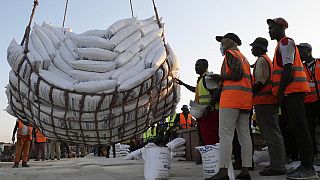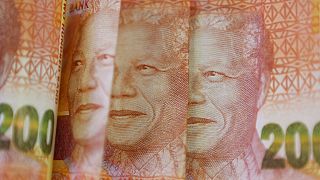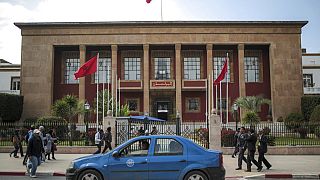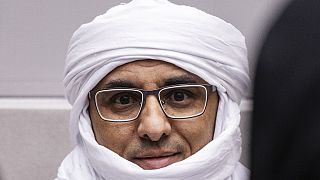Morocco
For Moroccan farmers, the combination of inflation and drought are proving a major headache as prices for everything from fuel to fertiliser have risen to all-time highs, making their work more difficult.
"This year, there was the drought, there was no agriculture production. There is no water, water decreased a lot, it is very hard (to work)," said Bella El Omari, who runs a farm in Ain Atiq, a town on the outskirts of Rabat.
El Omari said he expects yields to seriously suffer this year due to the lack of rain.
Morocco is suffering from a fourth consecutive year of low rainfall.
According to a report by the Ministry of Equipment and Water, the national average filling rate of Morocco's major dams was only 29.2% until mid of July 2022, a decrease of nearly half from the same period (45.2%) in 2021.
The Moroccan government has decided to implement a water-saving program in addition to setting aside more than $1 billion to aid farmers who are suffering from drought.
This entails the implementation of restrictions on the flow of water distributed to consumers as well as a prohibition on the use of drinking water for car washing, filling swimming pools, and irrigating golf courses and green spaces.
"The drought in Morocco has always been considered a circumstantial problem but is a structural problem, and today it has become necessary to deal with it accordingly," said Mehdi Fakir, an economic analyst.
Successive droughts over three of the last four years are a stark reminder of the vulnerability of Morocco's economy to increasingly erratic rainfall levels, the World Bank said.
The impact of the drought, compounded by the war in Ukraine, highlights Morocco's exposure to climate and global commodity pricing shocks.
For Fakir, the drought, as well as the international crisis in the wheat and fuel market prove that it's necessary to find a fast and structural solution to the current situation affecting the North African country.
"The increase of prices and the increase of the production costs at the international level affect the local infrastructure, and consequently this leads to an internal inflation," Fakir said.
Inflation in Morocco has reached previously unheard-of levels as the consequences of the coronavirus pandemic disrupt global supply chains and the ongoing conflict in Ukraine drives up energy costs.
As a result, Moroccans' purchasing power has been put under increased pressure, as has been the case in many other nations around the world.
According to the country's planning agency, inflation in Morocco reached 7.2% in June, one of the highest levels since 2008.












01:09
Nigeria's inflation rate surges as food prices escalate
01:26
Zimbabwe’s Climate-Smart Agriculture: Empowering Farmers through Resilience and Innovation
01:29
Political analyst says Donald Trump's win moves US to the right
01:26
Egypt's economic outlook: Growth expected amidst IMF reforms
01:26
UN: Southern Africa faces worst hunger crisis in decades due to El Niño
01:04
Nigeria's fuel price challenge: second increase in one month